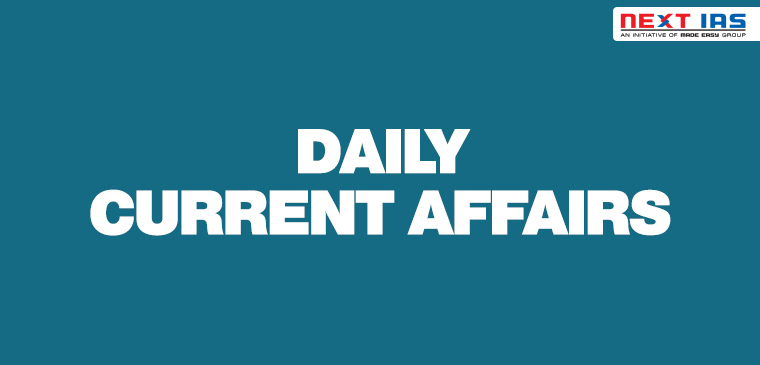
In News
Recently, India has chaired the First BRICS Employment Working Group (EWG) Meeting, held virtually.
- Participants: Representatives of member nations (Brazil, Russia, India, China and South Africa), the representatives of International Labour Organization (ILO) and International Social Security Agency (ISSA) also made valuable interventions and suggestions on the agenda issues.
Prime Agendas of the Meeting
- Promoting Social Security Agreements (SSA)
- SSA would help the international workers to port their benefit to their home countries thereby preventing loss of their hard earned money.
- Further they will be exempted from contributing both in home as well as host countries.
- Members resolved to enter into dialogue and discussion with each other and take it forward towards signing of the agreements.
- They also converged on devising a multilateral framework for the same.
- ISSA and ILO expressed willingness to provide technical support in facilitating conclusion of such agreements.
- SSA would help the international workers to port their benefit to their home countries thereby preventing loss of their hard earned money.
- Formalization of Labour Markets
- Members discussed various initiatives taken by them towards formalization of jobs.
- They also discussed how Covid-19 has enhanced informalization risk.
- Participation of Women in Labour Force
- Members resolved to promote participation of women in remunerative, productive and decent work.
- There was a consensus on extending social security cover to the women workers engaged in the informal sector.
- Impact of Covid-19 on participation of women in the labour force was also discussed.
- Gig and Platform Workers’ Role in Labour Market
- Members discussed how the proliferation of Digital Labour Platforms is transforming the labour processes in the world of work.
- They also discussed challenges faced by them and various measures being taken by member nations including extension of social protection systems.
BRICS
- It is an acronym for the grouping of the world’s 5 major emerging economies, namely Brazil, Russia, India, China and South Africa.
- Genesis
- July 2006: The leaders of Brazil, Russia, India and China met in St. Petersburg, Russia, on the margins of the G8 Outreach Summit.
- September 2006: They formalised the group BRIC during the First BRIC Foreign Ministers’ Meeting, which met on the sidelines of the General Debate of the UN Assembly in New York City.
- June 2009: First BRIC Summit was held in Yekaterinburg, Russia.
- September 2010: South Africa was accepted as a full member at the BRIC Foreign Ministers’ meeting in New York and it was renamed as BRICS.
- Presidency/Chairmanship: It is rotated annually among the members, in accordance with the acronym B-R-I-C-S and its Leaders’ Summit is held annually.
- India has assumed the Presidency for 2021.
- Three Pillars
- Political and Security: To enhance cooperation and dialogue on issues of global and regional security, developments in the global political space, cooperation on countering terrorism, etc.
- Economic and Financial: To promote economic growth, development for mutual prosperity through expansion of intra-BRICS cooperation, aimed to attain Sustainable development Goals (SDGs).
- Cultural and People-to-People Exchanges: To enrich intra-BRICS people to people contacts in cultural, academic, youth, sports, business, through regular exchanges.
- Significance
- BRICS countries have been the main engines of global economic growth over the years.
- These together represent about 42 per cent of the population, 23 per cent of Gross Domestic Product (GDP), 30 per cent of the territory, and 18 per cent of the global trade.
India’s Low Spending On Health
- According to the Department of Economic Affairs (DEA), India’s public expenditure on health is the lowest among the BRICS nations.
- It also noted that the Covid-19 pandemic has caused a setback in the journey of SDGs.
- Also, there is a wide variation in the public expenditure that happens on health as well as on education.
- Education: Brazil and South Africa spend about 6 per cent of their GDPs and rest of the countries, which include India, spend 4-4.5 per cent of their GDPs.
- Health: India’s public expenditure is the least among the BRICS countries.
- Suggestions
- Technology should be developed and used in such a way that it does not lead to further digital divide and the poor should have the first access.
- Telemedicine, diagnostic interpretation are big areas where access problems can be mitigated to a large extent by using technology.
- There should be a major investment scale-up and upfront large-scale investments.
- China achieved the most remarkable sustained growth over four decades through this approach only.
- The New Development Bank (NDB) should also help to bring about universal access to healthcare services through digital access.
(Image Courtesy: LM)
International Labour Organization
International Social Security Agency
Department of Economic Affairs
New Development Bank
|
Source: PIB
Previous article
Connected Commerce: NITI Aayog
Next article
Facts in News